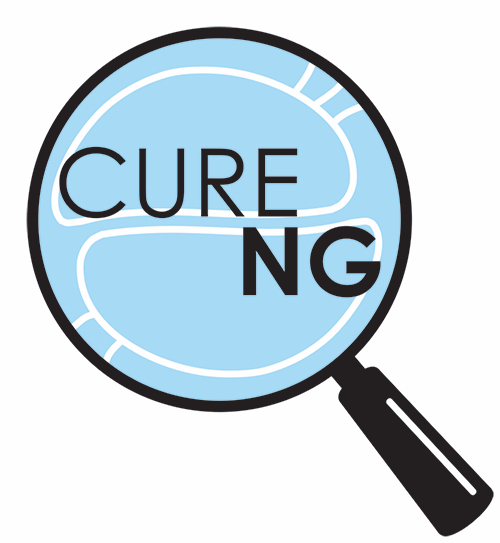-
Cure-NG: A Controlled human infection model of oropharyngeal Neisseria gonorrhoeae infection

Project details
A controlled human infection model (CHIM) involves deliberate exposure of study participants to an infectious agent. These models improve our understanding of infections and enable testing of a new treatments and interventions, such as a new medications and vaccines, to determine whether they can prevent or cure disease. CHIMs have helped to fast-track vaccines for typhoid, cholera, malaria and Respiratory Syncytial Virus (RSV) and drugs for RSV and malaria. These studies have been reviewed and approved by independent human research ethics committees around the world and serious adverse events in trial participants are rare.
The Cure-NG project brings together Australia’s leading clinician researchers in CHIMs, sexually transmitted infections (STIs) and infectious diseases to undertake world-leading translational research using a CHIM to develop new drugs and vaccines for gonorrhoea.
Infection with Neisseria gonorrhoeae, the bacteria that causes gonorrhoea, is a major global public health problem with an estimated 87 million people infected with gonorrhoea per year. Gonorrhoea is an STI that can cause a wide variety of disease, ranging from asymptomatic infection to urogenital disease and rarely, disseminated infection. If not diagnosed and treated early, gonorrhoea can lead to severe consequences, including ectopic pregnancy and infertility, blinding eye infection of newborns and disseminated disease. Infection also promotes transmission of HIV. The incidence of gonorrhoea continues to rise inexorably, both in Australia and internationally, indicating a failure of currently available control measures, with gonorrhoea disproportionately affecting vulnerable populations, including people living with HIV, men who have sex with men, sex workers and the Aboriginal and Torres Strait Islander population.
One of the characteristic features of N. gonorrhoeae is its ability to develop resistance to every antimicrobial agent used in treatment regimens, including current first-line drugs. The emergence and spread of drug-resistant gonorrhoea, has been deemed a critical threat to public health by the World Health Organization (WHO) and the United States Centers for Disease Control and Prevention (CDC). N. gonorrhoeae has therefore been classified as a high priority pathogen on the WHO Global Priority List of Antibiotic-Resistant Bacteria to guide research, discovery and development of new antibiotics. Gonorrhoea treatment failure due to an extensively-drug-resistant (XDR) N. gonorrhoeae strain (resistant to both current first-line antimicrobials, ceftriaxone and azithromycin) was first reported in the UK in 2016, and has subsequently been reported in Australia, demonstrating the growing local and global threat of untreatable gonorrhoea.
The aim of the Cure-NG project is to develop a gonorrhoea CHIM of the throat, otherwise known as the oropharynx. This would be the first oropharyngeal gonorrhoea CHIM performed in humans. An oropharyngeal gonorrhoea CHIM would be of great value for testing of new drugs, as infection of the oropharynx is the most difficult site to cure. An oropharyngeal gonorrhoea CHIM is also important for vaccine development as modelling studies suggest that a gonorrhoea vaccine would have limited impact on gonorrhoea prevalence unless it is effective at the oropharynx. As oropharyngeal gonorrhoea is usually readily treatable and results in no symptoms or long-term health effects if treated early, an oropharyngeal gonorrhoea CHIM performed according to rigorous ethical standards may offer an opportunity for research that improves the future of gonorrhoea treatment and prevention with minimal risks to study participants.
Researchers
- Professor James McCarthy, Doherty Institute
- Professor Deborah Williamson, Doherty Institute
- Professor Jane Hocking, University of Melbourne
- Professor Sharon Lewin, Doherty Institute
- Professor Louise Keogh, University of Melbourne
- Professor Lynn Gillam, University of Melbourne
- Professor Andrew Steer, Murdoch Children’s Research Institute
- Professor Christopher Fairley, Monash University
- Professor Eric Chow, Monash University
- Professor Marcus Chen, Monash University
- Professor Kate Seib, Griffith University
- Dr Euzebiusz Jamrozik, Doherty Institute
- Dr Joshua Osowicki, Murdoch Children’s Research Institute
- Dr Eloise Williams, Doherty Institute
- Dr Georgina Pollock, Doherty Institute
- Dr Shivani Pasricha, Doherty Institute
- Dr Soo Jen Low, Doherty Institute
- Professor Magnus Unemo, Orebro Universtiy
- Professor Joseph Alex Duncan, UNC School of Medicine
Funding
Medical Research Future Fund Clinician Researchers Applied Research in Health Grant (MRFAR000354).
Research Publications
Williams E, Seib KL, Fairley CK, Pollock GL, Hocking JS, McCarthy JS, Williamson DA. Neisseria gonorrhoeae vaccines: a contemporary overview. Clin Microbiol Rev. 2024 Mar 14; 37(1):e0009423. Doi 10.1128/cmr.00094-23

Dr Eloise Williams
+61 3 9342 9379 | eloise.williams@mh.org.au
- Position:
- Clinical Microbiologist, VIDRL | PhD Student, Department of Infectious Diseases
- Theme(s):
- Viral Infectious Diseases, Antimicrobial Resistance, Bacterial and Parasitic Infections
- Discipline(s):
- Discovery Research, Computational Science and Genomics, Public Health, Clinical and health systems research
- Unit(s):
- The University of Melbourne, Department of Infectious Diseases, The Royal Melbourne Hospital, Victorian Infectious Diseases Reference Laboratory (VIDRL)
Dr Eloise Williams is a Clinical Microbiologist and Infectious Diseases Physician at the Victorian Infectious Diseases Reference Laboratory. She is also undertaking a PhD with the Williamson Group through the Department of Infectious Diseases. Her current clinical microbiology practice and research interests include sexually transmitted infections, blood-borne viruses and public health. The primary aim of her PhD is to develop an oropharyngeal gonorrhoea controlled human infection model to further characterize the pathogenesis of oropharyngeal gonorrhoea infection and accelerate the development of novel vaccines and therapeutics.


